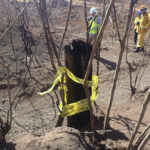Standard & Poor’s Ratings Services noted that ” many members of the International Group of Protection & Indemnity Clubs (IG) have been hit by the recent turmoil in the global financial markets. However, S&P said it “believes that the IG’s very strong financial flexibility will enable most of the clubs to replenish their free reserves over the rating horizon. The IG’s very strong competitive position supports our view.”
S&P further explained that its position “arises from the IG’s quasi-monopoly, which makes the market less attractive to potential entrants. Consequently, any negative rating actions on any of the IG members are likely to be limited. However,” S&P continued, “if any particular club within the IG were to suffer a deterioration in its competitive position or prospective financial flexibility, this would likely lead to downward pressure on its ratings. A failure to adequately address the erosion of free reserves derived purely from investment losses is less likely to lead to negative rating actions. We do not expect any positive rating actions over the next two years.
“Historically, most of the clubs have had aggressive investment strategies geared toward equities. More recently, some clubs have invested significant amounts in hedge funds. By the beginning of 2008, some reduction of risk had already taken place, and during October this process accelerated, with more clubs reducing or almost exiting their equity portfolios and reconsidering their investments in hedge funds.
“Nevertheless, some of the clubs do potentially face reductions of between 20 percent-30 percent of their free reserves at the next financial year-end, purely because of realized and unrealized investment losses. Standard & Poor’s views those clubs that have actively managed their investment risks to a level within their risk appetite favorably. ”
S&P added that “were it not for the IG’s very strong competitive position and very strong financial flexibility (defined as the ability to impose significant premium increases and make unbudgeted supplementary calls at renewal), most clubs would have already faced downward pressure on their ratings.
“By contrast, out of the interactively rated non-IG marine mutuals, we have recently lowered the ratings on Norwegian Hull Club to A-/Stable/– from A/Negative/–, and revised the outlook on Sunderland Marine Mutual Insurance Co. Ltd. (BBB+/Stable/–) to stable from positive. In both cases, the rating action followed reductions in capital.”
S&P singled out the “ongoing financial turmoil and the uncertainty surrounding the potential impact of large claims falling within the IG pool and subpool, most of which tend to be reported between the last and first quarters of the calendar year.” This indicates that “the clubs will need to pay closer attention to next February’s renewal to replenish their free reserves. This is despite having achieved average general increases at the last five annual renewals of approximately 50 percent in aggregate.
“Of course, no club could have foreseen the magnitude of October’s financial turmoil on Feb. 20, 2008. Our conversations with the clubs to date indicate that most of the clubs which have not yet announced their general increases for next year will be asking for general increases of more than 10 percent, or even making unbudgeted supplementary calls.
“Although we expect more IG clubs to announce high general increases, it remains to be seen how ship owners will react to the next renewal given the current economic downturn, which is already showing adverse consequences for the shipping sector.
“The dry bulk and container sectors have already been hit very hard and consequently the clubs will face more resistance to premium increases from these operators, particularly from the fixed premium charterers whose business has historically been profitable.
“Overall, the quality of the clubs’ membership will play an important role in achieving adequate pricing levels. Nevertheless, in general we derive comfort from the IG clubs’ approach to the next renewal as it will assist most clubs in bringing capital-adequacy levels, as measured according to our proprietary model, to a level that is more consistent with their published ratings.
“However, those clubs that impose significantly higher general increases or make unbudgeted supplementary calls will face pressure on their prospective competitive position within the IG. This may in turn lead to negative rating actions, not only because of deterioration in these clubs’ competitive position within the IG but also because of reduced prospective financial flexibility.”
Source: Standard & Poor’s – www.standardandpoors.com
Was this article valuable?
Here are more articles you may enjoy.

 California Chiropractor Sentenced to 54 Years for $150M Workers’ Comp Scheme
California Chiropractor Sentenced to 54 Years for $150M Workers’ Comp Scheme  California Sees Two More Property Insurers Withdraw From Market
California Sees Two More Property Insurers Withdraw From Market  Hawaiian Electric Hits 40-Year Low Ahead of Maui Fire Report
Hawaiian Electric Hits 40-Year Low Ahead of Maui Fire Report  SC High Court Strikes ‘Troubling’ Denial of Comp Claim, Says Can’t Be Based on Stats
SC High Court Strikes ‘Troubling’ Denial of Comp Claim, Says Can’t Be Based on Stats 